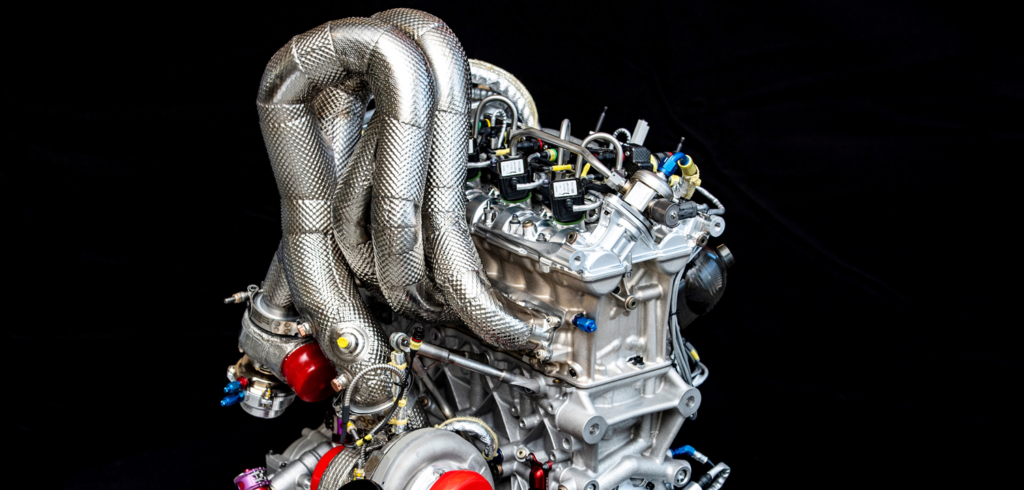This year’s DTM touring car race series in Germany will see Audi provide a new 2-liter four-cylinder powerplant for its RS 5 DTM cars after a rule change last year. The engine delivers more than 610hp and is lighter and more efficient than its predecessor.
The new Audi engine will be deployed for the first time at the DTM’s opening race on May 4 at the Hockenheimring, Germany. The engine took two and a half years to develop and was tested for 1,000 hours on the dynamometer.
Dieter Gass, head of Audi Motorsport, said, “Our drivers were totally thrilled in the first test.
“However, the move from the naturally aspirated V8 to the turbo engine is not only important due to the additional output of some 100hp. In DTM we’re now driving with a high-efficiency engine of the type we’re also using in many production vehicles.”
The new Class 1 regulations of the DTM aim to encourage fuel efficiency. Just like in the design of production cars, the challenge for DTM’s engineers is to extract the maximum performance from the available fuel through high compression and good efficiency.
In the DTM, the amount of fuel is limited to 95kg (210 lb) per hour. “That may sound like a lot but when used with more than 610hp, it really isn’t,” said Ulrich Baretzky, head of engine development at Audi Motorsport.
“The specific consumption of the DTM engine is extremely low and now within the ranges that used to be typical for diesel engines. In terms of weight and lightweight design – especially in the context of avoiding CO2 emissions – we’re pointing out a few approaches that will hopefully find their way into future road-going vehicles – like in the case of the first TFSI for Le Mans and the TDI.”
The compact four-cylinder turbo engine with gasoline direct injection (TFSI) only weighs 85kg (187 lb), around half the weight of the naturally aspirated V8 engine that was previously used in the DTM. As a result, the dry weight of the Audi RS 5 DTM has dropped to less than 1,000kg (2,205 lb). The power-to-weight ratio is now about 1.6kg (3.5 lb) per horsepower.
A single DTM engine has to last for a full season, so it is designed to run for some 6,000km (3,700 miles). “The format of the DTM is a great challenge,” said Stefan Dreyer, head of powertrain development at Audi Motorsport. “The long mileage, distributed to many events with short runs, is really tough.
“Plus, the four-cylinder engine’s vibration behavior totally differs from that of the V8. That posed a huge challenge during the development of the engine and also to our dynamometers.”
The additional output of more than 100hp, as well as higher torque, puts a greater load on the entire powertrain. The output is extended further with the use of the ‘push-to-pass’ system, which the driver can use to provide a short-term engine power boost, for instance in an overtaking maneuver.



